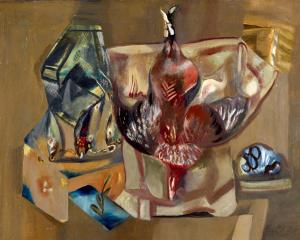A fourth-form teacher told her she had no ability in music and should give it up but Judy Bellingham proved her wrong. The Dunedin soprano and singing teacher has recently celebrated 40 years of public performances.
In a career that has taken her around the globe, Bellingham has set a world record, coped with a tonsillectomy that changed her voice, and found innovative ways to attract people to recitals.
But, even now, she recalls the fallout from the words written on a school report by Miss Margaret Hinchcliff.
"At the end of the fourth form, I moved to a new school and on the basis of what she had written, I wasn't allowed to do music for school certificate. So I did no academic music at school whatsoever."
Bellingham, herself a former high school music teacher, has been the senior lecturer in voice at the University of Otago since 1993.
While students cross the leafy campus to the sound of piano music, Bellingham voices unswerving views on a variety of subjects, from the name plate on her office door — "I prefer Miss. I think Ms is an absolute cop-out" — to her decision to give up schoolteaching after 21 years — "Had I wanted to be a facilitator, I would have gone into the trade union movement."
She is also against the "current American fetish over singers, particularly women, being small and stylish", saying there doesn't seem to be a similar move against those who are tiny or exceptionally tall.
Between coffees - dehydrating stuff that she wouldn't touch on the day of a big performance - she describes a life that in some ways is a contradiction in terms.
She collects beautiful crystal and antique china but also loves cricket.
She adores dangly earrings but is too scared to have her ears pierced.
She drives a Nissan Sentra but wants to travel through Europe in the sidecar of a BMW motorbike.
She also says she is shy but hides it with a thick veneer that makes her appear an extrovert.
One subject off limits is the health problems that have taken their toll in the past two years and that have contributed to her decision to take stock.
Once the next six months' singing commitments are out the way, she will decide if she will continue performing.
Born in England, Bellingham arrived in New Zealand with her parents as an 8-year-old.
Her father was a commercial traveller who decided later in life to train for the Anglican priesthood.
Neither he nor his wife were particularly musical but when 11-year-old Judy asked if she could learn to play the piano, they scraped together £25 to buy one.
"It was held together with Sellotape and the only place it would fit was in my bedroom," she recalls.
"I had to climb over the keyboard to get into bed."
At first, her mother taught her to play hymns but later she had "proper lessons" in both piano and singing from the church organist.
Bellingham hated being the local vicar's daughter and when she finished school, decided to move as far away from her Opotiki home as she could.
She enrolled at Canterbury University and, unaware there was such a thing as a degree in performance, did a BA in music and languages while studying singing privately.
Students did not have to work then and had more time to enjoy themselves, she says, adding her participation in comic operas staged by the university music students' society led to "one of the wackiest things" she has done.
Fellow students discovered that the record for the world's longest cadenza (an improvised passage at the end of an aria) had been set in 1815 by a tenor in Italy.
They then decided that Bellingham should try to better the 25-minute record as a publicity stunt at the next concert.
Watched over by a first-aid team, she managed 28 minutes and 23 seconds before laughter got the better of her.
Her first professional performance in 1974 as soprano soloist in Bach's St Matthew Passion was not so happy: "I came off the stage and said I was never, never going to do it again. I was so scared."
But the fear was short-lived and soon she was heading overseas, first to study with Antonio Moretti-Pananti in Melbourne and then with Otakar Kraus in London.
Kraus was a "sensitive" man who took her to the pub for gin if she was not in the mood to sing and who told her that her personality was better suited to being a big fish in a little pond than a little fish in a big pond, she recalls.
"He said I could 'make it' but that for me, it was going to be a real struggle.
"It was in that knowledge I came back to New Zealand and I don't think I regret that decision.
"I've been able to have a family and a career as well, and that's been pretty special."
The Czech baritone trained Bellingham as a mezzo, rather than the soprano she had been.
Then when she was 40, having her tonsils out turned her back into a soprano.
The surgery for "strep throat" was a gamble as the tube that went into her lungs to help her breathe went through the larynx.
Fortunately, this did not damage her vocal cords but with her long, infected tonsils no longer exerting pressure on those cords, her voice rose.
Bellingham, who sings in French, Italian, German and Spanish, says she always enjoys the challenge of performing overseas.
Next month she will be one of two soprano soloists touring the Baltic states, Portugal and Spain with Christchurch's Cathedral of the Blessed Sacrament Choir and Orchestra, and later she will give a recital at Bellingham Castle, in Ireland (which is connected to her family).
However, she is equally proud of the fact she has created roles in six New Zealand operas and commissioned six works from New Zealand composers.
She is also doing academic research on the history of teaching singing in New Zealand.
Dunedin music teacher and Otago Daily Times music reviewer Elizabeth Bouman describes Bellingham as a "people person" who knows the voice "inside out", while Prof Terence Dennis, who heads classical performance studies in the music department, talks of her enthusiasm: "She's always keen to learn and develop, which is important in a teaching environment".
Stephen Chambers, who graduated from Otago in 2005 and is now on the opera course at the Royal Scottish Academy of Music and Drama, says Bellingham is an "incredibly nurturing" teacher who is also very honest with her students.
The 1.8m tenor adds that after Bellingham nicknamed him her "favourite singing lamppost", he learned to really communicate the text of what he sings.
"Judy was the first person to identify this weakness in my performing, and challenged me to better myself."
The worst compliment anyone could pay her is to say that her 12 students sound like her, Bellingham says.
"Each voice has an individual sound and you have to build on that.
"Singing is incredibly 'mental'," she adds. "Mental in that it's in your head but also that it's odd at times. You have to be so over-the-top to put it all across."
"Just as a gesture on stage needs to be large to make it seem realistic, so everything you do with your voice on stage has to be large and therefore perfectly tuned, like an engine that runs extremely well."
It is also one of the few papers at the university in which students have to do all the work themselves: "You can't borrow somebody's assignment and you can't cram off somebody else's lecture notes".
The 59-year-old is no stranger to spadework herself, putting in 12-hour days at the university, coaching private pupils as well and spending many weekends adjudicating or performing.
She works with choirs and has produced two professional operas for the university, but denies being a workaholic.
"I know some people think I am. But I'm not good at doing nothing. If I wasn't here [at the office], I'd be sitting drinking and eating and looking like the back end of a bus."
Separated from her first husband, she has three adult children.
In her free time, she enjoys reading, cooking for large groups, holidaying in Central Otago and is an "armchair netball fanatic".
She has also completed a master's in entrepreneurship and says until recently there has been little money for arts groups to represent the country overseas.
For example, in 1999 - the same year the All Blacks failed to win the World Cup - the New Zealand Youth Choir was named "choir of the world" at the International Music Eisteddfod in Wales, after running cake stalls to get there.
Entrepreneurship has also meant finding innovative ways to get patrons along to recitals, which people think are "a bit odd" and don't want to attend "unless you're Kiri Te Kanawa or Pavarotti".
Bellingham's answer was to develop themed recitals.
One of these comprised music that Shakespeare's heroines would have sung, with texts recited from Shakespearean plays.
Another featured songs about flowers, with scented programmes and fresh blooms on every seat.
Such performances may be less frequent in the future because singing becomes more difficult with age.
Her pitch is dropping, her tone darkening and it is becoming harder to learn lyrics.
But Bellingham will continue to guide others for as long as she is "compos mentis".
"Retire from teaching?", she says, as though she cannot have heard the question correctly.
"Gosh. I don't imagine I'll ever do that."
• Biography of Judy Bellingham
Age: 59.
- Is a soprano, who trained in New Zealand, Australia and England and first performed in public 40 years ago.
- Is the William Evans senior lecturer in voice at the University of Otago and operates a private studio.
- Her most notable pupils have included Rebecca Ryan, Nicola Edgecombe, Robert Tucker and Stephen Chambers.
- Has performed in England, Europe, the United States, South America, Russia, Taiwan and Libya.
- Has created six roles in New Zealand operas, and sung as soloist with all the country's major choirs and orchestras.
- Recorded a CD of New Zealand songs and a DVD, Songs of Old Dunedin.
- Once made the Guinness Book of World Records as the singer of the longest cadenza (28min 23sec, in 1973).
- Is director of the New Zealand National Singing School and a vocal consultant to the New Zealand Youth Choir.
- Has taught for Glyndebourne Festival Opera in England and for the annual International Music Festival at Tunghai University in Taiwan.
- Is an examiner for both the New Zealand and Australian Music Examinations Boards.
- Is president of the Dunedin Performing Arts Competitions Society and the Otago branch of the Dame Malvina Major Foundation.
- Is a trustee of the Southern Youth Choir and of the New Zealand Youth Choir.
- Is on the committee of the Otago branch of the New Zealand Choral Federation.
- Is the author of a book on how to sight-sing.
- Was president of the New Zealand Association of Teachers of Singing for six years. - Holds a bachelor of arts from the University of Canterbury and a masters degree in entrepreneurship, with distinction, from the University of Otago.
- Is a Fellow of the Trinity College of London (FTCL) and a Licentiate of the Royal Schools of Music (LRSM) in solo singing.
- Is also a trained teacher.
- Received the New Zealand 1990 Commemoration medal for community service.












